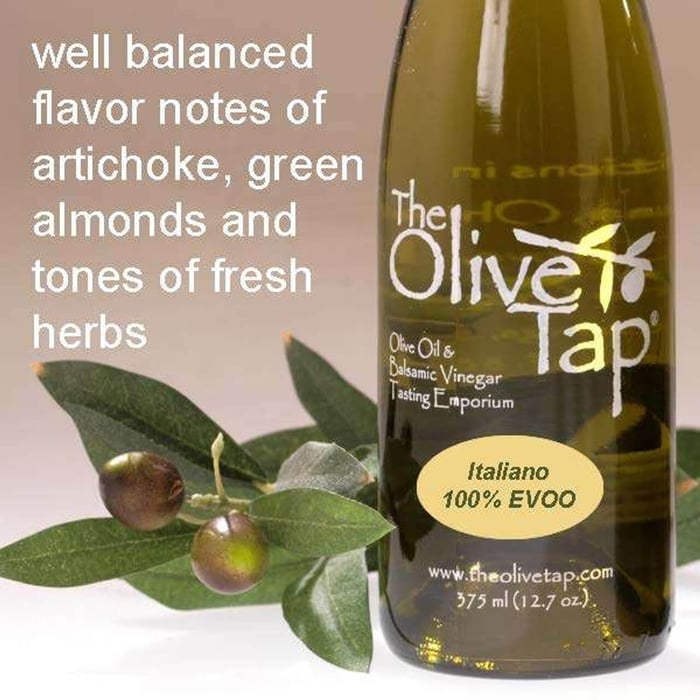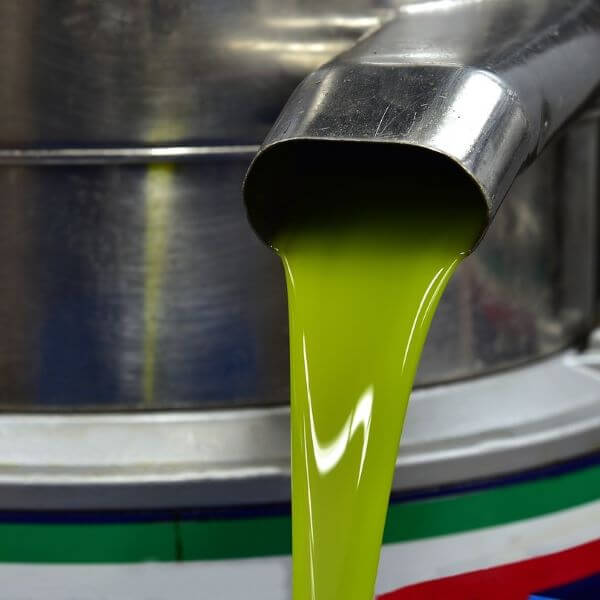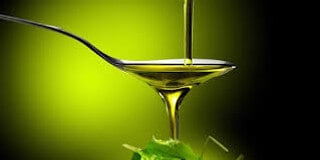Our Blog

The Taste of Truth: The Importance of Flavor in 100% EVOO
In order to be judged Extra Virgin, Olive Oil is evaluated in two ways: their sensory attributes and the test results of a laboratory analysis. On the sensory side, the flavor and aroma must be without any flavor or aroma defects. Since these sensory descriptions can be somewhat qualitative, the industry trains people who can rate oils in a consistent manner. There are a wide range of flavors and varying degrees of intensity among different varietals (types) of oils that are acceptable. The importance of flavor in 100% EVOO is key and The Olive Tap stores carry a range of them from mild to robust.
To be categorized as Extra Virgin, olive oils must also undergo a series of laboratory tests to evaluate their chemical properties against established standards. In general, the test results give us an indication of overall quality and they help determine the purity of the olive oil, or indicate if the oil has been adulterated.
Let's be clear. The majority of our customers buy premium quality olive oils for their exquisite and unique flavor. These customers do not have a thorough understanding of olive oil chemistry and, in our opinion, flavor is or should be the #1 factor for them in deciding which oil to buy. Since 2006, our stores have been designed so that visitors could taste before we bottle their selection. As a result, they make their decision based on which oil suits their flavor preference, and can watch us fill their bottle from the same tank their sample came from.
Chemical values, on the other hand, cannot be measured using the senses. For many years, the traditional tests were acidity, oxidation expressed as the amount of peroxides, and 3 photometric tests for color and light transmission used to detect adulteration. All olive oil sanctioning bodies have acceptable limits and standards for these tests.
Recently, some new tests have been developed to combat adulteration: DAGs and PPPs. These new tests indicate the quantitative values for DAGs (Diacylglycerol) and PPPs (Pyropheophytins). The DAGs test measures molecular changes in the oil that occur over time and can also indicate adulteration. The PPP test measures thermal degradation products of chlorophyll to give insight into the age of oils and possible adulteration.
Published research concludes that PPPs and DAGs test are excellent indicators of the age of the oil, if the oil has been adulterated, if poor storage conditions existed, and if the oil was made with poor quality fruit. At the present time, DAGs and PPPs tests are not globally accepted as standard tests.
As it relates to adulterated olive oil, it has been our experience that the sale of these oils is primarily limited to the grocery store and mass market sector. Not to say that grocery stores intentionally sell fraudulent oil, it is just that they focus on being the low price supplier to the mass market. Obviously wherever there is pressure to reduce cost and offer low retail prices, the door opens for unscrupulous suppliers to sell oils that specialty stores like The Olive Tap would totally ignore.
The Olive Tap and most olive oil specialty shops purchase oils from producers that are not playing the price game. Except for a few large companies who are making high quality oils, most are smaller, artisan producers who have an intense focus on flavor and quality. They routinely submit their oils to competitions and they are often carrying on a long time family tradition making a product that they are proud of. We pay them a fair price for their oil, and they provide us with some of the highest quality oils you can buy.
Unfortunately, we now routinely find some olive oil specialty retailers using chemical test values in a deceptive manner. Many of these stores are the same ones who falsely claim to offer "18 years old" or "up to 18 years old" (whatever that means) Traditional Balsamic Vinegar of Modena for $15.00 to $22.00 per bottle. Some are simply ignorant of the product they sell, while others intentionally attempt to confuse and mislead consumers to gain a competitive edge. They tout the DAGs and PPP values as a testament to the quality of their oils. Unfortunately, the values are misleading since they only indicate the quality of the oil at a specific point in time. The published values are only indicative of what they were in the past, and not what they are when you purchase the oils.
Let us explain. A distributor of oils sells to these misinforming stores and this distributor lists the PPP and DAGs values on their price list. It is clearly indicated that the DAGs and PPPs are "at the time of harvest." Those values are quite meaningless to a consumer purchasing this oil months and even years after it was made. If we were to purchase and then send a bottle of these oils to a lab today, we would find that the DAGs numbers would be lower and the PPPs higher. Similarly, other test values like Polyphenol levels drop over time and Peroxides go up. In short, all too often the numbers published by these stores give the impression that these are current and accurate. Many fail to indicate when the olive oil was made, and that these values were "at the time of harvest."
The values they tout only tell us about the oil on or about the day it was produced, nothing else. An unscrupulous producer or supplier could easily adulterate this oil immediately following the tests. Coincidently, the values published by the producer, and then the supplier, for the PPPs and DAGs are exactly what you would expect if you test oil shortly after quality olives are milled. So what's the point?
Publishing DAGs and PPPs values that existed at the time of harvest, and passing them off to the consumer as evidence of present quality of the oil , is misleading at best and may in fact be a dishonest attempt to gain a competitive advantage. Except for industry insiders and a small number of educated aficionados, the consumers of high quality Extra Virgin Olive Oil do not know about these tests and what they really mean. And with no knowledge as to how to interpret the information, consumers are easily swayed by marketing gimmicks. Just remember, the importance of flavor in 100% EVOO if you are purchasing olive oil from a reputable retailer.
At The Olive Tap, we always know the crush date and keep the chemical values on file. We try our best to find reputable producers who routinely submit their oils to professional organizations, certifying agencies, laboratories and competitions where experts evaluate the oils with a focus on flavor and aroma. We focus on freshness, and more importantly, flavor and aroma. We do not think consumers want a chemistry lesson just to purchase a high quality Extra Virgin Olive Oil. The importance of flavor in 100% EVOO it really about suiting your flavor preference and one that will make your culinary creations taste great.



